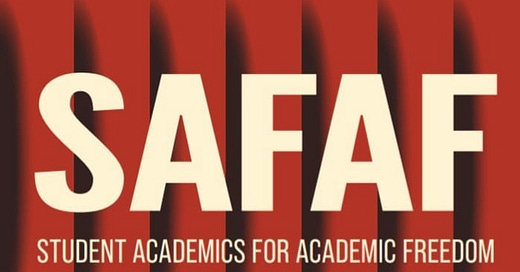Why Decolonisation in Academia is very bad for Students
Introduction
Decolonisation has become a buzzword in academia in recent years, sparking debates about how we should approach learning and scholarship. Proponents argue that decolonising curricula and research will make academia more inclusive by re-evaluating the “colonial” influences. While inclusivity is undoubtedly valuable, decolonising academia could harm students' education and weaken the core of academic inquiry.
Here are some recent examples of how universities in the UK have been addressing the decolonisation of their curricula:
1. University of Birmingham: Birmingham has initiated decolonisation efforts within its School of Education, primarily through its Think Diversity project, which includes surveys and focus groups with minority ethnic students to enhance inclusivity. The project has influenced curriculum reviews and developed resources like a decolonisation toolkit. Birmingham is also working with local schools on their Dubai campus to adapt curriculum content that considers diverse cultural perspectives, catering to the UAE context.
https://www.birmingham.ac.uk/schools/education/research/projects/decolonising-the-curriculum
2. University of Nottingham: Nottingham has restructured various English Studies modules to address cultural diversity. Modules like “The Gothic Tradition” now emphasise discussions on gender, race, and imperialist violence, while “Shakespeare and His Contemporaries” has been redesigned to explore diverse interpretations of Shakespeare. Nottingham’s “One and Unequal: World Literature and English” module examines authors from various global backgrounds, challenging traditional, Eurocentric canons in literature.
https://www.nottingham.ac.uk/english/about/equality-diversity-and-inclusion/decolonising-the-curriculum-in-english-studies-at-uon.aspx
3. University of Aberdeen: Aberdeen's decolonisation initiative aligns with its anti-racism strategy, embedding decolonisation in its core institutional values. By 2025-26, Aberdeen aims to implement comprehensive curriculum changes to introduce more global perspectives. The university has also introduced resources, workshops, and other support to help staff and students engage with diverse knowledge systems and challenge Western-centered narratives in various subjects.
https://www.abdn.ac.uk/about/strategy-and-governance/decolonising-the-curriculum-2581
4. The University of Glasgow: Glasgow has been actively involved in a comprehensive decolonisation project, primarily driven by its *Decolonising the Curriculum Community of Practice* (DtC CoP) initiative. Established in 2022, this project aims to critically examine and address colonial biases within the university's curriculum. By re-evaluating course content, teaching, and assessment practices, the initiative seeks to make the curriculum more inclusive and representative of diverse global perspectives, moving away from a solely Eurocentric lens. This work is intended to foster a more socially aware and ethically grounded academic community. The university has extended its decolonisation efforts beyond the classroom. At The Hunterian Museum, “Curating Discomfort” is an initiative that addresses colonialism's legacy in museum collections and practices. This project invites diverse community voices to collaborate on reinterpreting exhibits, confronting the historical injustices tied to artefacts, and encouraging critical reflection on museums' roles in shaping cultural narratives.
https://decolonising.glasgow.ac.uk/knowledge-hub/
https://www.gla.ac.uk/hunterian/about/changing-museum/curating-discomfort/
These initiatives reflect a growing trend across UK universities to re-evaluate and enrich their academic content, aiming for inclusivity and a more representative global outlook in education. However, I will argue that a more traditional approach to knowledge and critical thinking might better serve students and society.
1. Academic Integrity Should Come First
Decolonisation often involves revising or removing certain texts, thinkers, or fields deemed too “Western” or “colonial” in origin. However, the aim of higher education is, or should be, to expose students to the best ideas, methods, and evidence available. Good scholarship is valuable regardless of where it originates. Excluding content based solely on its cultural or historical origins undermines the integrity of education by prioritising ideology over truth and excellence.
2. Knowledge Should Be Challenged, Not Rejected
Decolonization advocates often push for replacing “Eurocentric” ideas with knowledge systems from other cultures. While there is value in considering diverse perspectives, simply replacing one set of ideas with another isn't necessarily productive. Knowledge isn't inherently “colonial” just because it was developed in the West. Concepts like the scientific method, mathematical proofs, or foundational texts in philosophy emerged in particular cultural contexts but have universal applications. We can engage with these ideas critically without discarding them entirely.
3. Emphasis on Historical Truths
Decolonisation sometimes oversimplifies complex historical truths. For example, many academic subjects build on foundational ideas that emerged globally, drawing on various influences, adaptations, and interpretations across time. Rejecting these as “colonial” ignores the collaborative, interconnected nature of knowledge development. History is not a simple story of one culture dominating another; it is a tapestry of exchanges, influences, and adaptations. By labelling certain knowledge as “colonial,” we lose sight of this complexity, which may distort students’ understanding of how knowledge evolves.
4. Protecting Academic Standards
One of the primary goals of academia is to cultivate a high standard of critical thinking and analytical skills. Yet, decolonisation efforts prioritising political or social agendas can erode these standards. Research and discourse risk becoming shallow or biased when academic decisions are made based on ideology rather than evidence. A true commitment to academic rigour means focusing on evidence, quality, and impact rather than limiting ideas to fit a specific narrative.
5. Inclusion Without Exclusion
A core argument for decolonisation is that it makes academia more inclusive. But inclusivity doesn't have to mean exclusion or rejection of established fields. We should expose students to various ideas—including non-Western perspectives—without diminishing or sidelining Western thought. Education should aim to build a broad, informed understanding that encourages students to appreciate and critically engage with ideas worldwide.
Conclusion
While well-intentioned, decolonisation in academia may do more harm than good by limiting students' access to foundational ideas and critical thinking skills. Rather than focusing on the origins of knowledge, we should emphasise its value, rigour, and relevance. Academia should be a space where students are encouraged to engage with, critique, and build upon ideas from all traditions without discarding any based on their origin.
Ultimately, a true education teaches students how to think deeply, not what to think. Let's keep academia rigorous, balanced, and committed to excellence.
Author: Heather McKee, SAFAF Convenor




